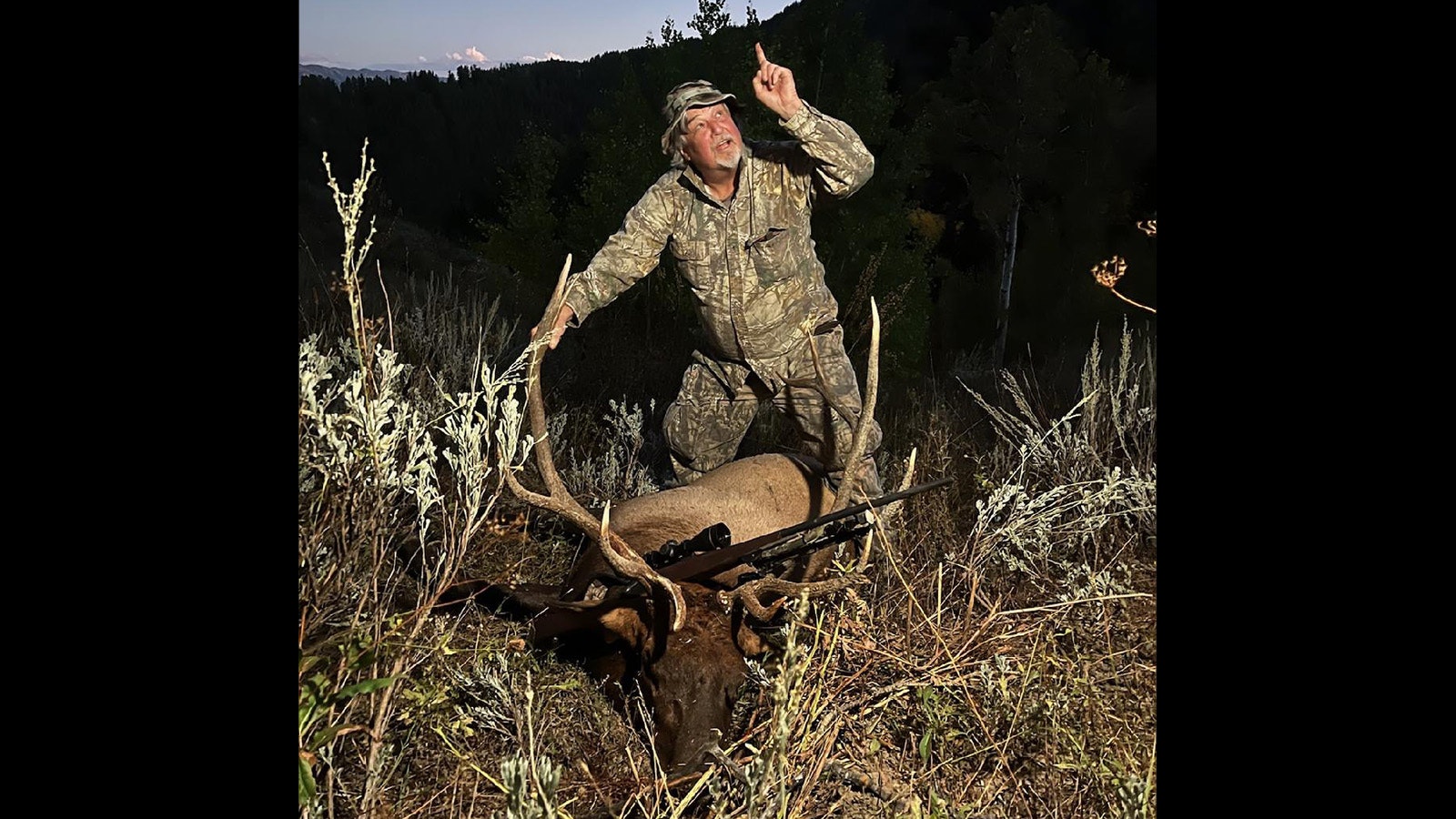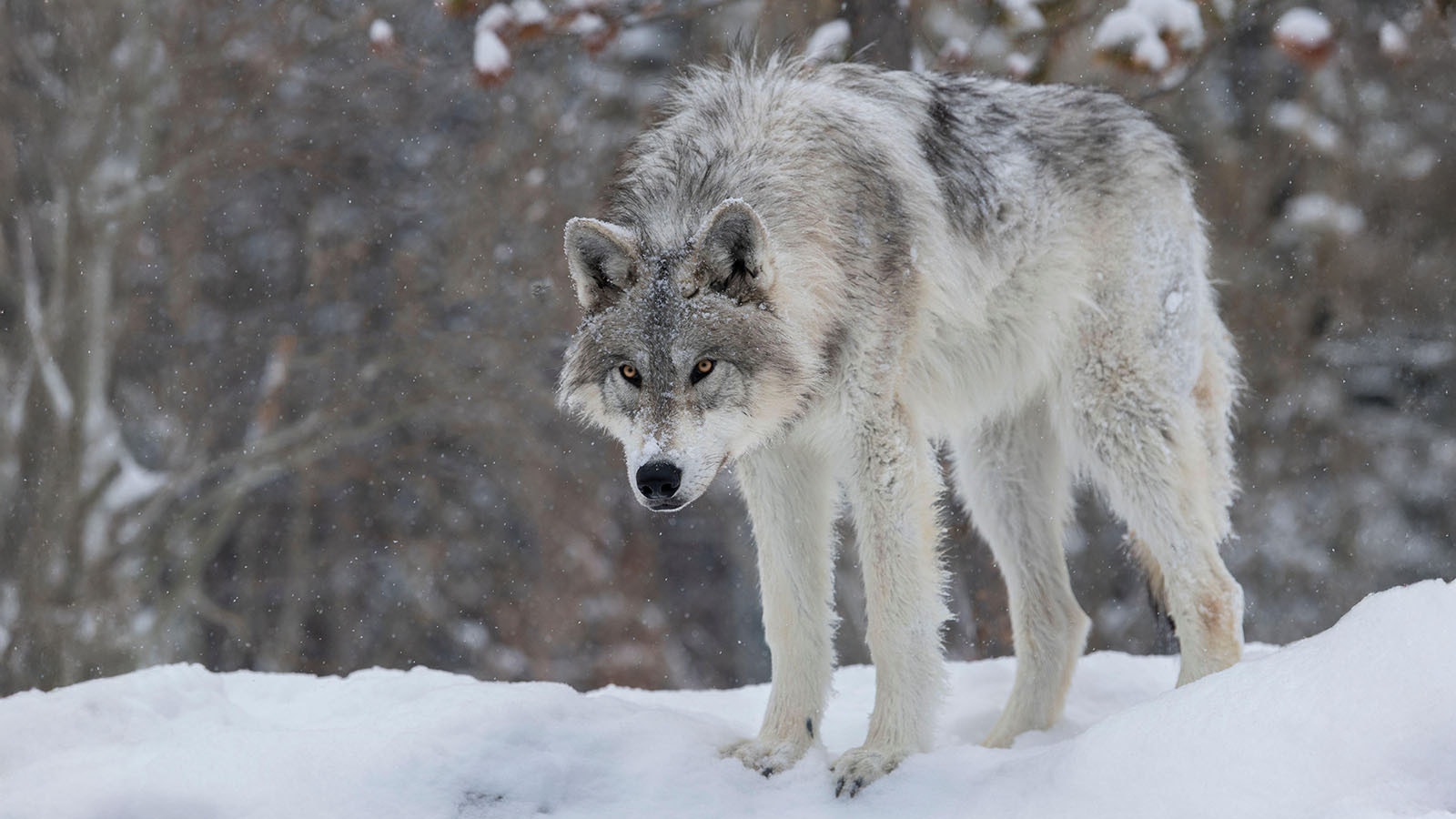When Brent Sibley speaks about his son, his voice conveys a constellation of emotions, bookended by grief and pride.
“He wasn’t one of those big, muscle-bound guys,” Sibley told Cowboy State Daily. “If you saw him in a grocery store, you’d never know that this guy was one of America’s deadliest, most dangerous and greatest warriors on the planet.”
Since his son Forrest was a little boy growing up in Alabama, he and his father dreamed of traveling West for an elk hunt. And in 2015, it seemed as if that was finally going to happen.
“It was the last thing that he and I talked about. It was on our bucket list. We were going to go somewhere like Idaho or Wyoming,” Brent said.
“He told me, ‘Dad, when I get back home from this deployment, we’ll roll it out,’” Sibley said.
They never got to do that hunt together.
Air Force Staff Sgt. Forrest Sibley, 31, was killed in action Aug. 26, 2015, near Camp Antonik in Afghanistan.

‘I’m Going To Join The Military’
It was a few years prior in 2007 that Brent got a phone call from Forrest that he never expected.
Forrest had a great, well-paying job with his grandfather’s company, and Brent figured that his son was set for a bright and prosperous future.
But Forrest had other plans.
“He told me, ‘Hey Dad, I’m quitting my job, I’m going to join the military,’” Brent said.
Forrest had come to the conclusion that a normal working life just wasn’t for him. He told his father that he wanted a greater challenge and real adventure.
He’d done his research and decided a military career was the pinnacle of challenge and adventure.
“I was sort of alarmed when he told me he was joining the military,” Brent said. “Then he told me he’d decided to try out for Air Force Combat Control. I didn’t even know what that was. So, I looked it up, and I became even more alarmed.”
‘The Quiet Professionals’
Known for the distinctive red berets worn with their dress uniforms, Airforce Combat Control teams are among the absolute best of America’s elite special forces.
The qualifying training is brutal, and the wash-out rate for hopefuls is upward of 90%. But Forrest made the cut.
Other elite units, such as the Navy’s SEALs or the Army’s Rangers, are widely recognized, Brent said. But Combat Control is rarely talked about even though it frequently takes on some of the most harrowing missions.
And from what Forrest told him, Combat Control prefers it that way, Brent said.
“He told me, ‘Dad, we’re the quiet professionals. We don’t want the attention.’”

A Legend Among The Best Of The Best
By all accounts from those who served with him, Forrest was stellar, Brent said.
“I never imagined that he could be such an incredible American hero,” Brent said. “It’s hard to imagine because he was such an easy-going guy. He was always happy, laid back, with a good sense of humor.”
Over the course of several deployments to some of the worst conflict zones, Forrest gained a reputation among his peers as a fearsome warrior who could always be counted on, his father said. In fact, that reputation was why he was hand-picked for what turned out to be his final deployment.
“What I’ve been told was they were looking for somebody to fill that slot for the mission in Afghanistan, and the word was, ‘You need to get this Forrest Sibley guy. He’s badass and he can perform. He’s been in some really serious combat.’”
When Brent got word that his son had been killed, the magnitude of the loss was just too much. It seemed their dream of a Wyoming elk hunt had died with Forrest.
But Brent came to realize he still had to fulfil the dream. He had to do it in honor of his son.
Rally Point Las Vegas
This fall, everything finally came together.
Brian Wadtke, who had served with Forrest, organized a guided elk hunt near Yellowstone National Park in Wyoming.
Brent flew from his home in Blount County, Alabama, to Las Vegas, where he met Wadtke and other members of Forrest’s team. Then they loaded up and drove to Wyoming.
“The guys from the team have taken me in and been really good to me,” Brent said. “Brian made sure everything for me was 90% paid for – the airfare, the guide service, everything.”
Once they arrived in Wyoming, they met up with outfitter Chad Christensen and guides Alan Cox and Garrett Leavitt, then headed to a base camp set up at 6,000 feet.
“The effect of the altitude didn’t really hit me until I went to sleep that night in the tent,” Brent said. “I woke up several times in the night feeling like I was suffocating, like I couldn’t get enough air.”
Seemingly Endless Climb
At 4:30 the next morning, they got up and started preparing to ride farther back into the mountains.
“I told Alan and Garrett, ‘I’m not a big horse guy, I don’t ride a lot,’” Brent said. “They assured me that they had the right horse picked out for me. They said, ‘She’s dependable, gentle and sure-footed.’”
It was still dark as they left base camp.
“We were riding on these little elk trails. It was kind of scary. I didn’t know where we were going,” he said.
Brent, who at the time was just shy of turning 69, has been active his entire life, and during the ride, the altitude didn’t bother him too much.
Then it was time to start hiking.
“It was really difficult for me. I kept having to stop because I was running out of breath,” Brent said. “My guide was very understanding. He told me, ‘Look, just 24 hours ago, you were at 500 feet above sea level. Now you’re up over 7,000 feet.”
The best vantage point was a nearby knoll, but that would require chugging up another 1,500 feet.
“I thought, ‘Man, if I’m having trouble breathing at 7,200 feet, how am I going to do at 8,500 feet?’” Brent said. “I was sucking air, but I made it.”
‘I Am Here. I Am Doing It.’
Once the climb was over, and Brent had time to catch his breath, the meaning of why he was there started to sink in.
“The scenery was just magnificent,” he said. “I would just look around and have to pinch myself. I couldn’t help but think of my son, Forrest. And I kept thinking to myself, ‘Man, I am here, I am doing it.’”
They’d been hoping for a trio of large bulls to emerge from the timber. A last, a big “6×6” came into view, Brent said.
There was a possibility for a clean shot at about 305 yards.
All the years of dreaming with Forrest, all the heaviness of grief in the wake of his passing – gradually merging with a father’s solemn pride and drive to do justice to his son’s legacy … all of it had collapsed into the pinpoint of that moment.
Brent pulled the trigger.
“I heard Garrett say, ‘Dead center! Perfect shot, dude. Perfect shot! He’s done.’”

Journey Back In The Dark
Dusk was gathering in the remote Wyoming back country as late afternoon gave way to evening.
“It was a very emotional moment. A very emotional moment. I couldn’t even speak for a while,” Brent said. “Forrest and I were going to do it, and that didn’t happen.
“And then I was going to do it for him. I did it. That mattered even more than the fact that I harvested an elk. I was able to do it.”
‘I Was Thinking Of Forrest’
The big bull’s carcass might have been only 305 yards along the bullet’s flight path. But given the ruggedness of the terrain, it was much farther by foot. It was dark by the time they got there.
“We took some time for pictures,” Brent said. “The photographer, Robert Contrado, caught me right at the perfect moment. I was looking up toward the sky and pointing up to Heaven. I was thinking of Forrest.”
Brent described the journey back to base camp as “the hardest thing I have ever done, physically.”
They didn’t get back to base camp until the wee hours of the morning, Brent spent the next couple of days resting, and then touring nearby parts of Wyoming before returning home.
“That elk hunt was a pinnacle landmark in my life,” Brent said. “Forrest wasn’t able to do it in person, but I promise you he was there in spirit. I could feel him. I talked to him pretty regularly throughout the whole trip.”
‘Fo-Land’
Brent is still close with the members of Forrest’s Combat Control team. He doesn’t know how he could have managed without their support and has done his best to return the favor.
In June 2015, about two months before Forrest died, the pair pooled their money for a down payment on about 100 acres of land on the Alabama/Florida line.
“Forrest told me, ‘Dad, I want a place for my guys,’” Brent said.
Through his own labor, Brent has made several improvements to the property, building a cabin, a fresh water well and outhouse.
“If you wore that red beret, you have earned the right to go there,” Brent said. “I’ve tried to make it a place where those guys can come hunt, hike, camp and bring their families – somewhere they can go and have no stress, no pressure.”
It’s come to be known as “Fo-Land” in honor of Forrest, he said.
Will Always Grieve
Brent won’t ever stop grieving his son.
“It’s not been easy, and it doesn’t get any better. But it’s different now,” he said. “I still have some down moments and days. But you’ve got to push on. And the guys support me.”
And his son’s name lives on.
“There’s been some children named Forrest,” Brent said. “These guys have told me, ‘Sir, I wouldn’t be here if it wasn’t for your son. The least I can do is to name my son after him.’”





